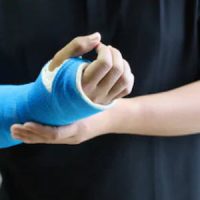Documenting Your Personal Injury

When you’ve been injured in an accident, one of the first things you’ll want to do is to start documenting your injuries and their costs. Doing so could prove crucial if you end up needing to file a claim, either with your own insurer, or with an at-fault party’s provider. Read on to learn more about how to go about documenting your own personal injuries after an accident.
Taking Photos
One of the best ways of documenting a personal injury is to start taking photos at the scene of the accident where the injury occurred. A person who slipped and fell at the grocery store, for instance, would want to take photos of the specific area where they fell, including any spills or dangerous hazards that may have caused the fall. It’s also a good idea, however, to take photos of the surrounding area as well. Those who have been injured in a car crash, for example, should be sure to take photos not only of the accident scene, but also of nearby road conditions, traffic lights, and street signs. These photos can be used, at the very least, to establish exactly where an accident occurred and even what the weather conditions were like at the time of the crash.
Getting Documentation
Accident victims will also need to get copies of important documentation, including records of diagnosis and treatment from the emergency room or medical facility that they visit. Collecting receipts for medical bills, as well as other costs associated with an accident, like a vehicle repair estimate or food delivery service, could also play a critical role in proving damages down the road. It’s also a good idea for accident victims to keep copies of the letters and emails that they received from their insurers related to their claim. Finally, accident victims who were injured in a car crash will want to request and obtain a copy of the police report created at the time of their accident. This report will include important information, including details about the cause of the crash and the names of anyone who saw the accident occur.
Keeping a Personal Record
There are also a few things that accident victims can do at home, on a day-to-day basis to help document their personal injuries. For example, many injured parties who are unable to work keep a list of the days and shifts that they were unable to go to work. This data, along with past pay stubs and tax returns, can be used later on to establish an accident victim’s lost wages. Accident victims should also consider keeping a journal that includes details about how their injury has affected their life, such as their ability to sustain relationships, fulfill job-related duties, and even perform everyday tasks. Eventually, this journal can be used to help establish how much the accident victim is entitled to recover in damages.
Schedule a Free Consultation Today
Call Boone & Davis at 954-566-9919 or contact us online to speak with a dedicated and compassionate Fort Lauderdale personal injury lawyer about the kinds of evidence you’ll need to file a successful personal injury claim.
Sources:
forbes.com/advisor/car-insurance/what-to-do-after-accident/
ddot.dc.gov/page/what-do-after-non-injury-crash
